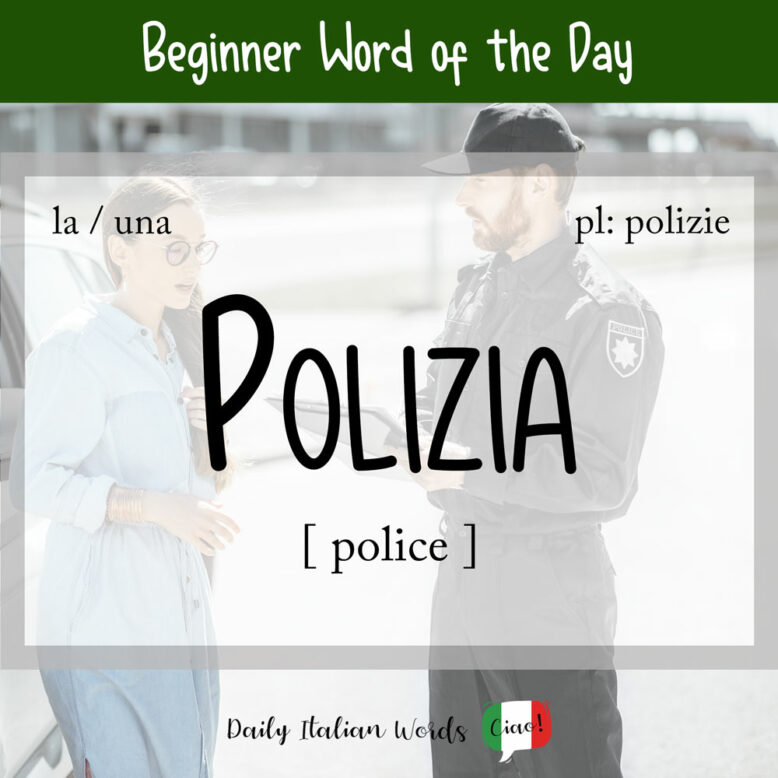The Italian word polizia (feminine, plural: polizie) and the English word police both derive from the Latin word politia, which in turn comes from the Greek word politeia meaning citizenship.

Of course today both the Italian and English refer to the civil force of a state, responsible for maintaining public order and preventing crime.
La polizia è responsabile di mantenere l’ordine e la sicurezza.
The police are responsible for maintaining order and security.
In Italy, there are two local forces and five national police forces:
Local:
Polizia Provinciale
(Provincial Police)
Polizia Municipale
(Municipal Police)
(also known as Polizia Comunale, Polizia Urbana or Vigili Urbani)
National:
Polizia di Stato
(State Police)
Guardia di Finanza
(Finance Police)
Arma dei Carabinieri
(Military Police)
Polizia Penitenziaria
(Prison Police)
Corpo Forestale dello Stato
(Forestry Police)
There is also an additional force called Direzione Investigativa Antimafia, a multi-force investigation body whose main task is the fight against mafia-related organised crime in Italy.
A policeman is called a poliziotto in Italian. To create the word policewoman, simply change the ending from the masculine o to the feminine a. The plural forms are poliziotti and poliziotte respectively.
I miei figli vogliono diventare poliziotti.
My sons want to become policemen.
The word polizia can also function as an adjective if preceded by della (of the).
La macchina della polizia sta pattugliando le strade.
The police car is patrolling the streets.

Below are a few important personnel you might see at the local police station (stazione di polizia) or headquarters (questura):
- agente di polizia = police officer
- capo della polizia = chief of police
- capitano della polizia = police captain
- commissario = police commissioner
- ispettore = inspector
- cane della polizia or cane poliziotto = police dog
Helpful tip: A word that sounds extremely similar to polizia in Italian is pulizia which means cleaning or cleanliness. Always make sure to pronounce the o in polizia very clearly to avoid misunderstandings! 🙂
Heather Broster is a graduate with honours in linguistics from the University of Western Ontario. She is an aspiring polyglot, proficient in English and Italian, as well as Japanese, Welsh, and French to varying degrees of fluency. Originally from Toronto, Heather has resided in various countries, notably Italy for a period of six years. Her primary focus lies in the fields of language acquisition, education, and bilingual instruction.


